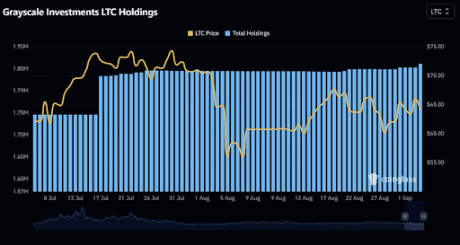Market Makers, blockchain project’s secret weapon
With their expertise and experience, market makers are the backbone of the market. They buy and sell assets at any time, providing bid-ask spreads in a market.
They are often called “liquidity providers” simply because their main goal is to keep the markets flowing, ensuring that buyers and sellers always exist for all assets within the market in which they operate.
Market makers are indispensable. Although they may not always be transparent about the trade life cycle, they are always there, operating behind the scenes, using complex algorithms and arbitrage strategies to keep the market running.
Market makers are not just profit-seekers; they are market shapers. They enable liquid and smooth-running markets, enhancing market liquidity and depth and creating demand and supply.
In traditional markets, Citadel Securities, Virtu Financial, and Jump Trading are some of the most widely recognized market makers worldwide, although Morgan Stanley is a market maker on the NASDAQ.
In crypto, market makers also aim to ensure enough liquidity in the market they operate in to ensure enough trading volume for seamless trades. With them, there would likely be more liquidity. They play a vital role in the crypto market, often causing significant token fluctuations.
Market makers can be broadly categorized into project advisors and traditional market makers. While both types aim to ensure market liquidity, they operate differently.
Market makers acting as project advisors aid in project launches. They contribute to success in critical areas such as robust token economics and token generation event (TGE) construction, successful token listings, and fundraising.
On the other hand, traditional market makers do not participate in low-market-value projects and handle a range of tasks such as supporting market liquidity, narrowing supply-demand gaps, and promoting efficient trading.
Market sentiment and trends determine which strategies market makers will adopt. During an upward trend or bull market, they create FOMO (fear of missing out). In the bear market, they generate fear among traders to compel traders or hodlrs to dump their tokens.
The good and the bad
As with everything, across the crypto market, there are those market makers who only take tokens from startups and sell them, but others like Gotbit, for example, bring tremendous value to the project with which they work.
“Prominent projects have achieved success thanks to their teams and technology because they solve real-world problems and have great market makers behind them,” said Alex Andryunin, Gotbit CEO and Founder.
Great market makers, he added, “help with all areas of a project, including marketing, tokenomics design, business development, and token generation events, among other very critical areas,” Andryunin added.
The Gotbit CEO said ethical and well-intentioned market makers “help ensure the health of the crypto market, and by backing liquidity, reducing spreads, and ensuring fair markets, they help facilitate global tokenized economies.”
He said that for startups and projects, “market makers like us help projects thrive and achieve success for themselves and their communities. Through greater transparency, market makers help all market participants, particularly token issuers, make more informed decisions.”
Market makers shouldn’t directly influence the price of tokens because if they do, crypto exchange operators usually notice. This could lead them to restrict tokens from their platforms and report them to authorities, which could decide to cancel their licenses, Andryunin said.
“I’m not going to name and shame any of my competitors, but there are some out there that deliberately influence the price for their own profit, which is considered market manipulation, and that is illegal and punishable,” he said.
Andryunin said great market makers should refrain from cooperating with each other. “They have no right to do so. It is considered fraud, but also, and ultimately, it is not profitable financially.”
Alex Andryunin also clarified that wash trading should not be perceived as market-making. “Let me explain: WW is a manipulation technique where unethical traders try to drive up the price of a token by artificially increasing its trading volume. What wash traders do, which market makers do not, is send crypto among several wallet addresses they control to give the false impression of massive trading activity and demand.”
That said, certain firms pose as market makers but are not, as they buy, copy, or create software that essentially consists of wash-trading bots, Andryunin warned. “As a rule of thumb, hiring these types of market makers is a recipe for the collapse of any project.”
He emphasized that projects must ensure their market makers are performance-focused. “An ethical and success-focused market maker earns when its customers earn, unline others who operate on a longing model and get tokens for themselves to manage.”
Building on Success Stories
Gotbit has helped over 500 projects achieve success in the last six months, including most notably Hamster Kombat Hamsters, which boasts over 3,00 million in three to four months, and BONK, a memecoin that in a very short time ranks 56th on CoinMarketCap with a $1.3 billion market cap and a price increase since the launch of over 17,00%.
“One of the reasons why we’ve been so successful with our partners is because we build on all our expertise, and we create playbooks with the success stories of the projects with which we work and customize them for each of our diverse clients,” said Alex.
While the success of any project depends on its team, community building, transparency, and reinvestment in top-tier crypto exchange listings and marketing, market makers are essential. More critical is ensuring you have the right market maker, because they are the secrete weapon of all blockchain projects.
The post Market Makers, blockchain project’s secret weapon appeared first on CryptoSlate.

